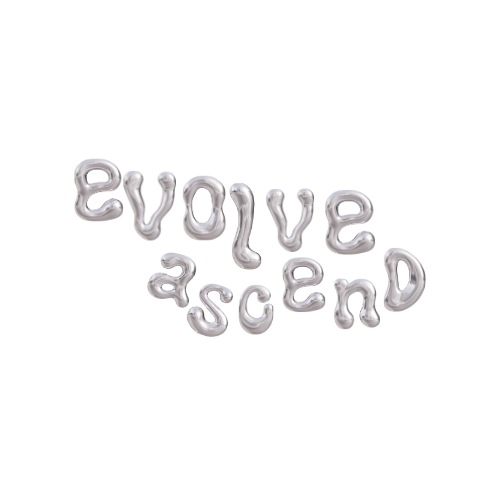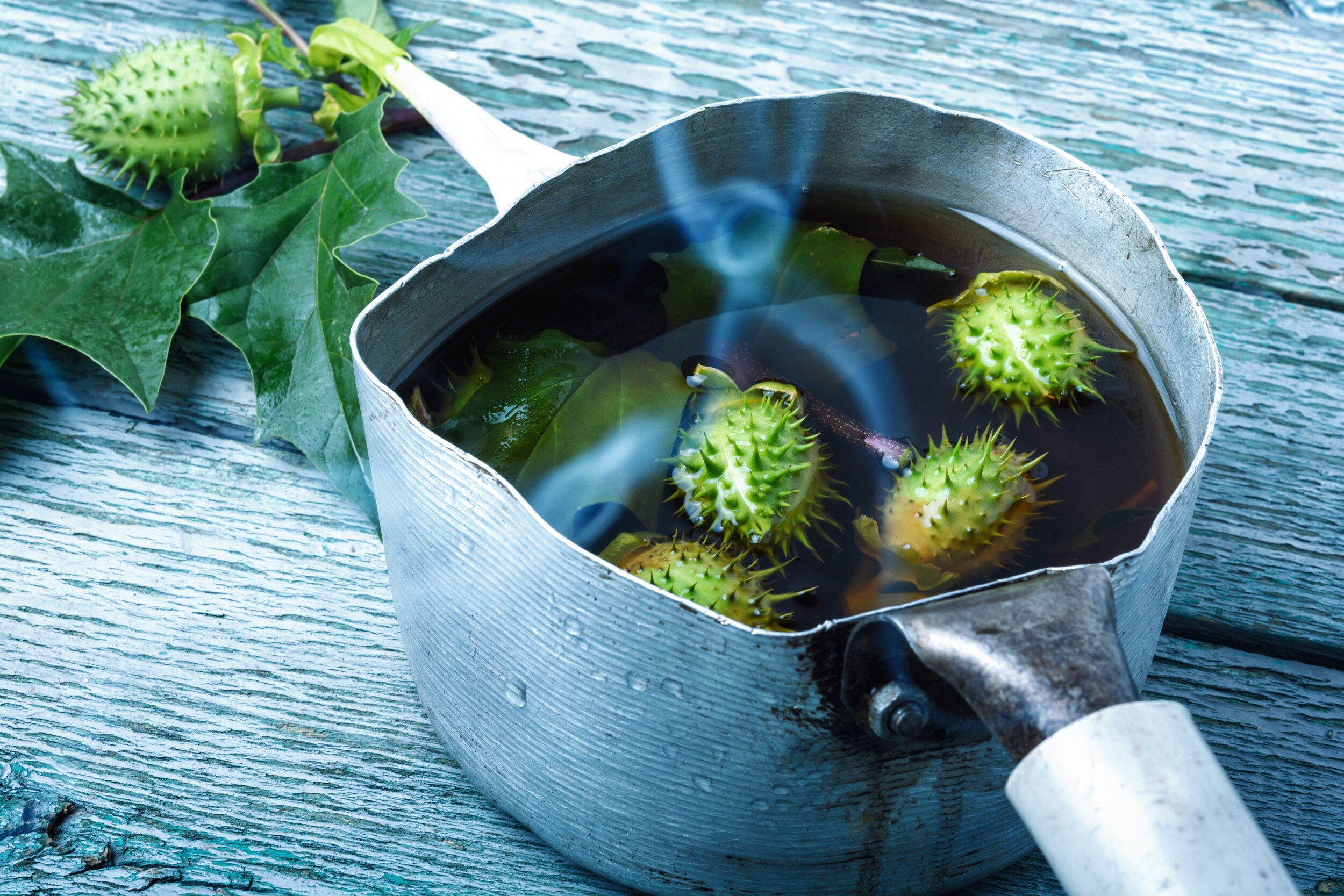Toloache: Mexico’s Love Potion Numero Uno
Toloache is known as an herbal love brew in Mexico, but it has other benefits, too - and some serious side effects.
Like most street markets in Mexico, el Mercado de Sonora in the nation’s capital is a place where you can buy almost anything. However, in this particular case, the market specializes in ingredients to cast spells by the thousands.
There are candles, potions, oils, herbs, stones, dead and even live animals for sale that promise to bring you that which you desire, though overwhelmingly, the offerings seem focused on three things: health, money, and, of course, love.
If it’s love you seek - and really, who hasn’t - of course, you could get a pink candle, rose quartz, and some lavender and go to town with any number of spells in the name of your beloved. Or, as someone at the market may suggest to you, you could drug them.
Disclaimer: Neither Evolve + Ascend nor its contributors advocate taking action on any of the following information!
Toloache, coming from the ancient Nahuatl word Toloatzin, toloa (“bow the head”) + tzin (“reverential”), is pretty easy to come by in Mexico. The plant, datura inoxia in Latin and colloquially referred to around the world as Jimson, Jamestown Weed, Angel’s Trumpet (for its shape), or Moonflower (for its night-time blooming characteristics), comes from the same family as nightshades. Its toxicity is recognized, but so are its benefits, the most commonly referred to usage in Mexico being the ability to make someone fall in love with you. The phrase “they gave you toloache” is used as slang in Mexico to call someone out in their enamored state.
That’s right, kids. Drop a little bit of Toloache seed in your would-be lover’s tea, and they’ll be yours forever, or so go the legends running back to pre-Columbian Mesoamerica. But if you’re going to go this route (again, we certainly aren’t suggesting it), you must be careful in dosage as the toxicity of the plant can cause permanent brain damage, abnormal heart rate, and respiratory difficulty. So it seems that you must choose love or brain damage. Or aren’t they one and the same?
It is relatively common to visit a shaman today in Mexico, in some localities of the Republic more so than others, and those visits would be inspired by seeking a cure for anything from arthritis to heartbreak. It’s some rural communities around Mexico, there is said to still be a potent love potion to eternally woo men made of chocolate, menstrual blood and toloache. Though some shamans avoid this, being that the blending of menstrual blood and toloache results in a manipulation effect that is too powerful, even by the standards of Mexican witchdoctors.
Researchers and professors at the National Autonomous University of Mexico (UNAM) have published a number of articles warning against the use of toloache, even as an herbal remedy, without the supervision of a knowledgeable herbalist. Dalia Goldhaber, of the university’s biology department, says that the plant's most well-known effects are excessive sweating, rapid heart rate, dilation of the pupils, nausea, dizziness, hallucinations, and has, in some cases, caused death. (Again, sounds like a real bad case of the lurvs.) The least verified effect of toloache, argues Goldhaber’s research, is that it functions as a sort of chlorophyllic Cupid.
In his famous anthropological (and illicit substance heavy) journal, “The Teachings of Don Juan: A Yaqui Way of Knowledge” the late Carlos Castaneda discovers the hallucinogenic properties of the plant under its traditional Yaqui name, “la hierba del diablo” - the devil’s weed. It is while on a spiritual quest under the influence of the devil’s weed that Castaneda refers to flying and divination using lizards in the desert.
"The devil's weed is like a woman, and like a woman she flatters men,” said Castaneda’s spiritual teacher, a Yaqui man named Don Juan. “She sets traps for them at every turn. She did it to you when she forced you to rub the paste on your forehead. She will try it again, and you will probably fall for it. I warn you against it. Don't take her with passion. The devil's weed is only one path to the secrets of a man of knowledge. There are other paths, but her trap is to make you believe that hers is the only way. I say it is useless to waste your life on one path, especially if that path has no heart."
In his controversial book “Tepoztlán: A Village in Mexico,” anthropologist Oscar Lewis describes Toloache and its reputation in a small, mystical town not far from Mexico City:
“The most commonly feared type of sorcery is a potion made from a well-known herb called toloache, secretly dropped into a man's coffee or any other drink. This herb is said to contain a drug that will affect the brain if taken in large doses. In Tepoztlan it is also believed that it will make a man tonto - that is, stupid or foolish and easily managed - and that an extra large dose will make him an idiot. The most important symptom to Tepoztecans is that the drugged man can no longer control his wife but is dominated by her.”
While Toloache and its variations are native to the Americas, it presently grows around the world after having been introduced in Europe, Asia, and Africa - and in those locations, the usage of the plant is relegated more toward its health benefits than its ability to captivate an unsuspecting lover or make one fly with the lizards.
In folk medicines around the world, including Spain and India, it is believed that smoking the Toloache flower like tobacco will help alleviate symptoms of asthma. In the ayurvedic tradition, the plant is referred to by its Latin name Datura, and is said to be beneficial in treating a host of concerns, including Bronchitis, Parkinson’s, hemorrhoids, painkillers (applying its roasted leaves directly to the affected area), abscess wounds, neuralgia, fistulas, calming schizoid patients, anti-inflammatory, kills stomach bugs, treats dandruff and hair loss, and an insect repellent for one’s garden.
While we’ll take a good herbal painkiller or anti-inflammatory any day, we prefer to leave the love business up to the stars or at least a more traditional courtship flower such as the noble rose or a non-menstrual blood-laced glass of red wine.



